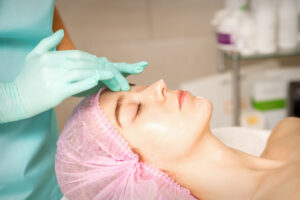Is Skin Peel Treatment Bad for Skin?

The Truth About Skin Peel Treatments: Are They Harmful to Your Skin?
Introduction
Skin peel treatments have gained popularity for their ability to rejuvenate the skin, improve texture, and address various skin concerns. However, questions may arise about whether skin peel treatments can be harmful to the skin. In this article, we uncover the truth about skin peel treatments and their impact on skin health.
Understanding Skin Peel Treatments
Skin peel treatments, also known as chemical peels, involve the application of a chemical solution to the skin to exfoliate the outermost layers and stimulate cell turnover. This process helps to remove dead skin cells, unclog pores, and promote the growth of new, healthier skin cells. Skin peel treatments come in different strengths and formulations to target specific skin concerns, such as acne, hyperpigmentation, or signs of aging.
Potential Risks and Considerations
While skin peel treatments can offer significant benefits, it’s essential to be aware of potential risks to skin health:
Skin Irritation: Depending on the strength and type of chemical peel used, individuals may experience temporary redness, stinging, or irritation during or after the treatment. This is typically mild and resolves within a few days but may require downtime depending on the peel’s intensity.
Sun Sensitivity: Following a skin peel treatment, the skin may be more susceptible to sunburn and UV damage. It’s crucial to protect the skin with sunscreen and avoid prolonged sun exposure to prevent sunburn and minimize the risk of post-inflammatory hyperpigmentation.
Risk of Complications: In rare cases, skin peel treatments can lead to adverse effects such as allergic reactions, infection, or scarring, especially if the treatment is performed by an inexperienced or unqualified provider or if proper pre- and post-treatment care is not followed.
Benefits of Skin Peel Treatments
Despite potential risks, skin peel treatments offer several benefits for skin health and appearance:
Improved Skin Texture: Skin peel treatments help to exfoliate the skin’s surface, resulting in smoother, more even skin texture and a radiant complexion.
Reduced Acne: Chemical peels containing ingredients such as salicylic acid or glycolic acid can help to unclog pores, reduce inflammation, and improve acne breakouts.
Anti-Aging Effects: By stimulating collagen production and promoting cell turnover, skin peel treatments can reduce the appearance of fine lines, wrinkles, and age spots, leading to a more youthful-looking complexion.
Tips for Safe Skin Peel Treatments
To minimize the risks associated with skin peel treatments and promote skin health, consider the following tips:
Consultation with a Qualified Provider: Seek a consultation with a board-certified dermatologist or licensed skincare professional who can assess your skin type, concerns, and suitability for skin peel treatments.
Customized Treatment Plan: Work with your provider to develop a customized treatment plan tailored to your skin’s needs and concerns, including the selection of the appropriate peel type, concentration, and number of treatments.
Follow Pre- and Post-Treatment Instructions: Adhere to your provider’s pre- and post-treatment instructions, which may include avoiding certain skincare products, medications, or activities that could interfere with the treatment’s efficacy or increase the risk of complications.
Conclusion
In conclusion, while skin peel treatments offer the potential for significant skin improvements, it’s essential to consider potential risks and safety considerations. By consulting with a qualified provider, following proper pre- and post-treatment care, and being aware of potential side effects, individuals can safely enjoy the benefits of skin peel treatments and achieve healthier, more radiant skin.
References:
- Wikipedia – Microblading: Microblading
- Wikipedia – Permanent Makeup: Permanent Makeup
- Book Your Skin Peel Treatment Appointment Now

